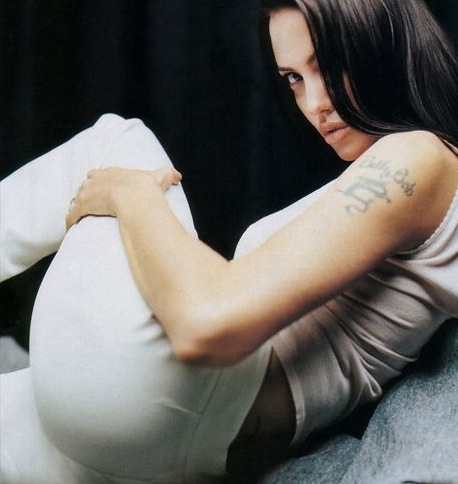 In ancient Babylonian mythology, the earth was formed by Marduk (right) out of the body of Tiamat (left).
In ancient Babylonian mythology, the earth was formed by Marduk (right) out of the body of Tiamat (left).  Norse God Odin and his brothers create the world out of the body of frost giant Ymir.
Norse God Odin and his brothers create the world out of the body of frost giant Ymir. Each year in the days surrounding their New Year's Eve, these ancient cultures would reenact that story. And they did so because they believed that it recreated that original act in the present, that it reinstated the order that had been instituted in the past. Creation was not something that happened just once, nor simply an act of building, but something salvific and ongoing.
If you read the first five books of the Old Testament, or sit with the Psalms for that matter, you will find the Jews regularly recalling the story of their salvation. And the rationale is much the same -- to retell the story is to bring it back into life in the present. So today at a Passover seder, practicing Jews reenact the events of the original Passover, eating matzoh and bitter herbs, and retelling the story of Passover, again with a belief that what they're doing is not simply recollecting a past event, but allowing it to happen to themselves. It is they who are being liberated, now.
 Last year's White House seder. You fill in the blank what they're praying for liberation from...
Last year's White House seder. You fill in the blank what they're praying for liberation from...Perhaps that sounds sort of cuckoo. But it's sort of like when a married couple is asked by their children to tell again the story of how they met, their dating, their engagement. They're nice stories, yes, but they aren't just that. Something in the telling reaffirms the relationship, feeds the fires.
According to Merrian-Webster's Online Dictionary, a creed is "a brief authoritative formula of religious belief" or "a set of fundamental beliefs; a guiding principle." And what are the first two words of the creed Catholics profess: "We believe." Yet if you take a look at what follows, you'll note the creed is not only a statement of our beliefs -- it's our version of this ancient practice of retelling the story of salvation. If you look at the Creed below, you'll see, in just 226 words, it provides a thumbnail version of the Christian story of salvation.
We believe in one God, the Father, the Almighty, maker of heaven and earth, of all that is seen and unseen.
We believe in one Lord, Jesus Christ, the only Son of God, eternally begotten of the Father, God from God, Light from Light, true God from true God, begotten, not made, one in being with the Father. Through Him all things were made. For us men and our salvation He came down from heaven: by the power of the Holy Spirit, He was born of the Virgin Mary , and became man. For our sake He was crucified under Pontius Pilate; He suffered, died, and was buried. On the third day He rose again in fulfillment of the scriptures: He ascended into heaven and is seated at the right hand of the Father. He will come again in glory to judge the living and the dead, and his kingdom will have no end.
We believe in the Holy Spirit, the Lord, the giver of life, who proceeds from the Father and the Son. With the Father and the Son, He is worshiped and glorified. He has spoken through the Prophets.
We believe in one, holy, catholic, and apostolic Church. We acknowledge one baptism for the forgiveness of sins. We look for the resurrection of the dead, and the life of the world to come. Amen.
The first paragraph: God the Father creating. The second paragraph: Jesus -- who he is, what he did in creation, in his life on earth and in the time to come. The final two paragraphs: the Holy Spirit, which proceeds from God and from Jesus to inspire and sustain the church and its saints.
This is not simply a set of principles. It's the story of our faith. And in making our profession, we're asking God to bring that story into existence again today. Order our world, enter into our lives, and send us forth to build the kingdom.
Kinda nifty, isn't it?















No comments:
Post a Comment